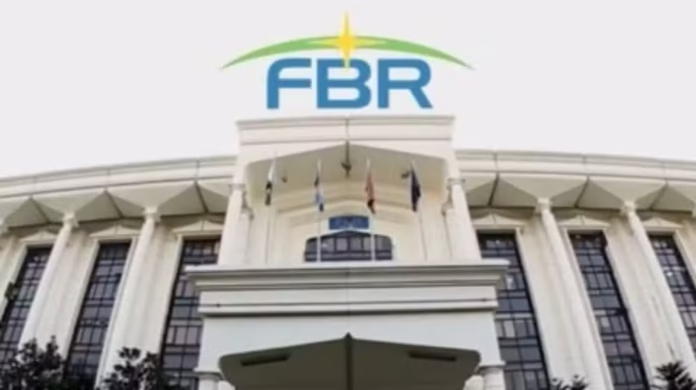ISLAMABAD – The Federal Board of Revenue (FBR) has issued approximately 11,000 “nudging” notices to companies and individual taxpayers across Pakistan, urging them to voluntarily correct anomalies in their latest sales tax returns or face stringent penalties, including bank account freezes and business closures.
The notices were rolled out last month by corporate tax offices in Karachi, Lahore, and Islamabad as part of a renewed campaign to enhance tax compliance. The move coincided with ongoing negotiations between the government and the business community, reflecting FBR’s firm stance on recovering due sales and income taxes.
FBR Chairman Rashid Langrial, who has launched a data-driven risk management system, believes many existing taxpayers are underreporting their liabilities. The system identifies discrepancies in tax filings over the past five years, focusing on unusually low value additions, excessive tax refunds, and high exempt sales claims.
According to FBR sources, these nudging notices are “non-intrusive and legally non-binding,” intended to encourage behavioural change. However, the message is clear: continued non-compliance will lead to punitive enforcement measures.
“You are advised to correct anomalies in your sales tax return. Failure to comply will be interpreted as a conscious decision not to follow tax laws,” reads the notice sent to multiple entities in Lahore.
The FBR cautioned that inaccurate filings in future tax periods may result in penalties, onsite monitoring, or “best judgment” assessments by tax officers. Thousands of taxpayers were also informed that their business premises could be sealed and bank accounts frozen if discrepancies persist.
The risk detection system uses automated data analytics to benchmark taxpayers’ filings against peer businesses within similar sectors and locations. It flagged suspicious trends in 2024 filings for the tax years 2019 to 2024 — including exaggerated exempt sales, high input tax claims, and inflated credit/debit note usage.
In response, Jawed Bilwani, President of the Karachi Chamber of Commerce and Industry (KCCI), expressed concern over the FBR’s move, criticizing the timing and lack of prior awareness. He argued that comparing businesses solely on reported sales ignores brand value and market positioning. “FBR cannot equate a Rs100 shoe with a Rs1,000 designer item,” he stated.
Despite pushback, FBR maintains that the nudging notices helped boost return filings in July, with a final assessment expected after the August 4 deadline.
In another type of notice, the FBR flagged businesses where reduced-rate sales were unusually high in proportion to overall sales. “Your reported output tax is far below expectations for your sector,” the notice warned.
The FBR also criticized excessive refund claims and unusually high numbers of credit and debit notes submitted by some businesses. Enforcement actions, including posting inspectors at business sites—especially cement factories—have reportedly improved tax collection.
As part of a broader overhaul, the FBR chairman has transferred over 250 tax officers from grades 17 to 22 to ensure that only top-performing officers are assigned key enforcement roles.




